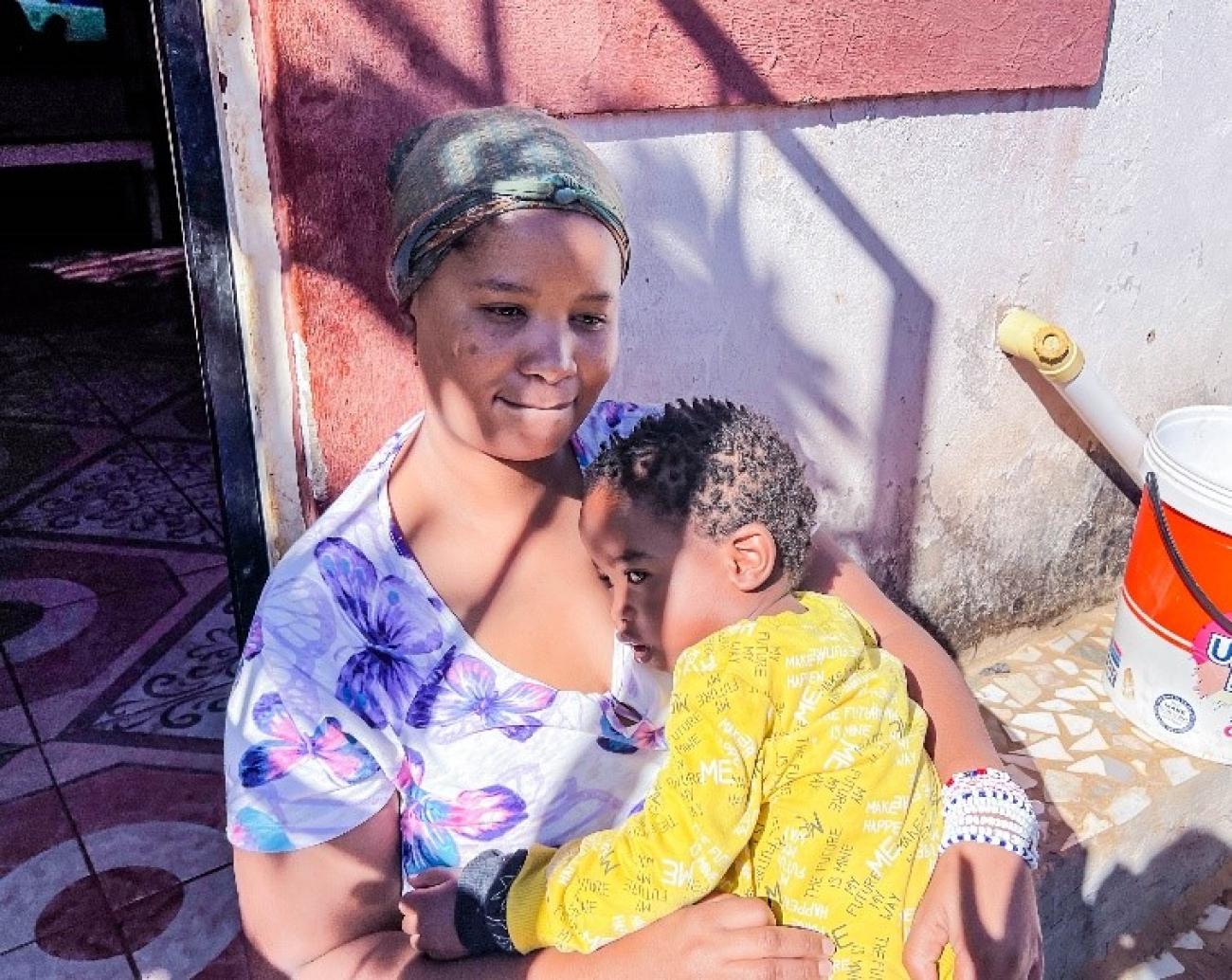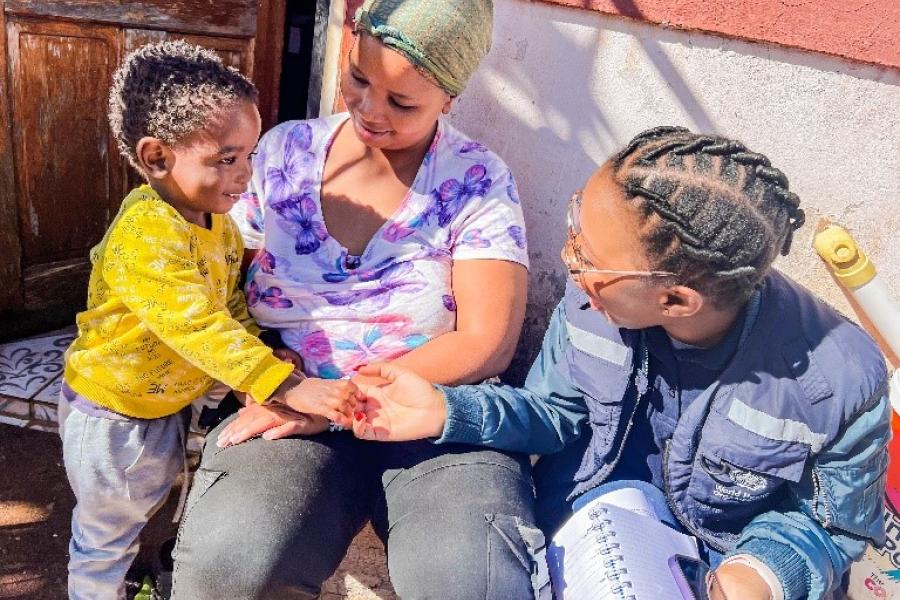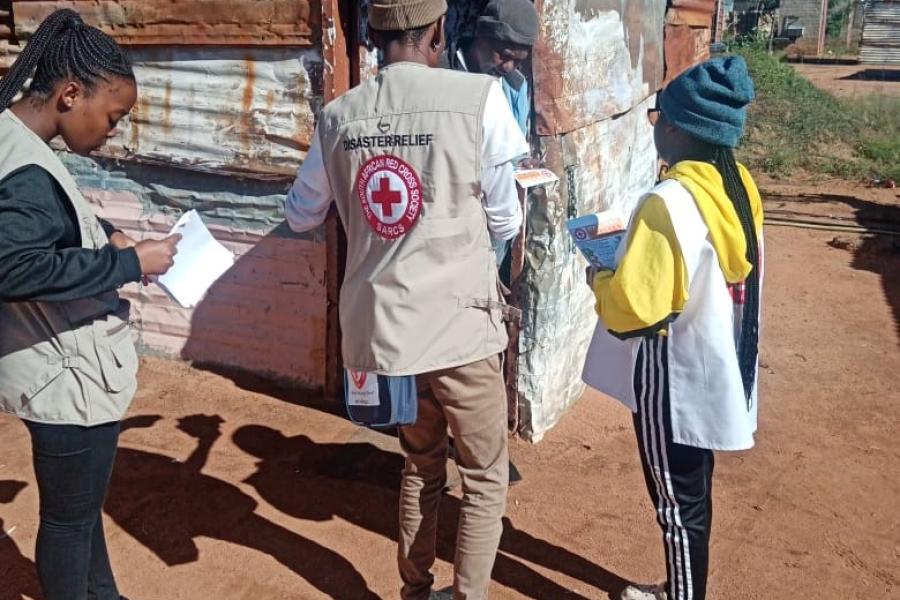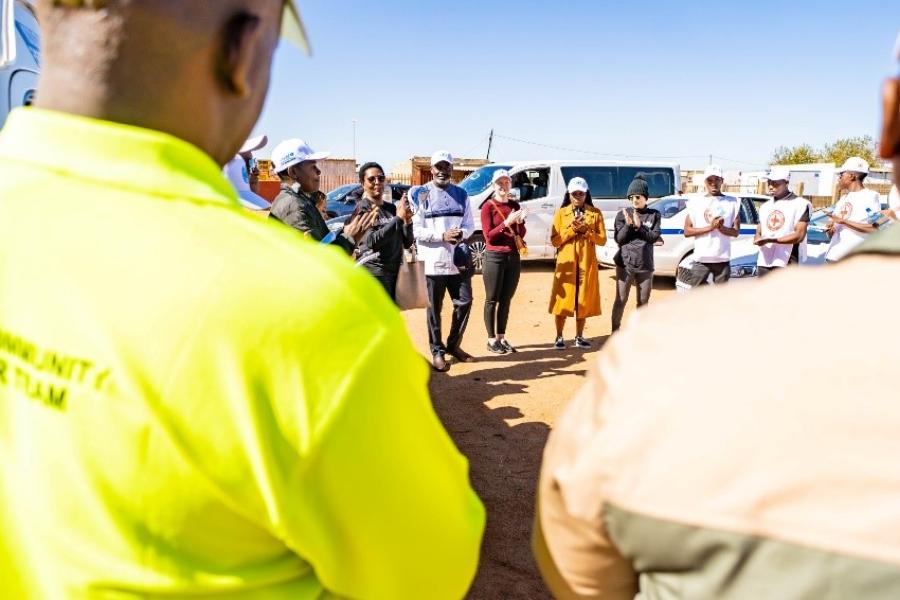Surviving Cholera: A Mother's Story of Resilience in Hammanskraal

Within a few days of the first reported case, the situation had escalated to the point where the government designated Hammanskraal as a "cholera hot spot."
By Nombulelo Malinga - United Nations Information Centre, Pretoria
In the heart of Hammanskraal, about 100 kms south of Johannesburg, a recent cholera outbreak struck like a bolt from the blue in its suddenness, virulence, transmission, and the rate of mortality within a short period of time. Cholera is a waterborne disease transmitted through contaminated water.
Sis Joy, a mother of two, was one of the residents whose families were threatened. "Cholera almost took my son's life,” she says.
Within a few days of the first reported case, the situation had escalated to the point where the government designated Hammanskraal as a "cholera hot spot." Statistics show that 17 people died from cholera-related diseases and 177 more were hospitalized, according Tebogo Matjokotja from the Gauteng Province’s Health Department.
Although the outbreak was spreading fast, Sis Joy was surprised upon learning how quickly it spread closer to her home.
“I overheard my neighbours discussing the outbreak, but I never thought that it would affect me and my children,” she confides.
She says the reality of cholera’s spread set in after she dropped off her son at school one morning, only to have him returned home in pain and tears. His stomach was gripped by cramps, and he couldn't stop vomiting. Fearing her child had fallen victim to the disease, she immediately took him to a nearby doctor.
Upon describing his symptoms which included stomach cramps, loss of appetite and persistent vomiting, the doctor advised her to rush her son to Jubilee District Hospital for immediate treatment. There, he received vital rehydration drips and medication, leading to a significant improvement in his condition.
Since that incident, Sis Joy has embraced strict measures to protect her household from further infections. She now purchases purified water, ensures tap water is thoroughly boiled before use, and maintains good hygiene practices.

However, the financial burden of acquiring safe water on a nearly-daily basis weighs heavily on her and accessing the weekly water deliveries to the community presents challenges due to her work commitments. When asked about alternative water purification methods, she says, , “I know we're supposed to mix water with bleach before drinking it, but I'm not sure exactly how much [bleach] to use.”
Sis Joy's story highlights the urgent need to make water purification systems easily accessible within communities. Recognizing the gravity of the cholera outbreak in Hammanskraal, the United Nations Children’s Fund (UNICEF) has joined hands with the South African Red Cross Society to provide life-saving information and resources to high-risk areas. The also set up handwashing stations at the Kanana Field Hospital and nearby schools, with plans for further expansion.
For its part, the World Health Organization (WHO) immediately mobilized and deployed seven technical officers to provide support in crucial areas that included coordination, case management, environmental health, epidemiology/surveillance, data management, infection prevention and control.

Additionally, the Red Cross Society has initiated a door-to-door campaign, distributing water purifying sachets to households in affected communities. Their objective is to provide 10 sachets per household, with each 25-gram sachet capable of purifying 20 litres of water for drinking, cooking, and washing.
"The United Nations is pleased to partner with the Red Cross on the cholera response and encourages partners and volunteers to continue their commendable efforts in combating the outbreak, said Nelson Muffuh, the UN Resident Coordinator in South Africa, said after visiting the affected communities in Hammanskraal.
As the distribution of water purifying sachets commences in Hammanskraal and as water washing stations are being provided, the hope is that every household will have access to clean and safe water. Through such initiatives, the UN in South Africa and its partners aim to safeguard the health and well-being of the community, ensuring that no other family endures the misfortune experienced by Sis Joy.







